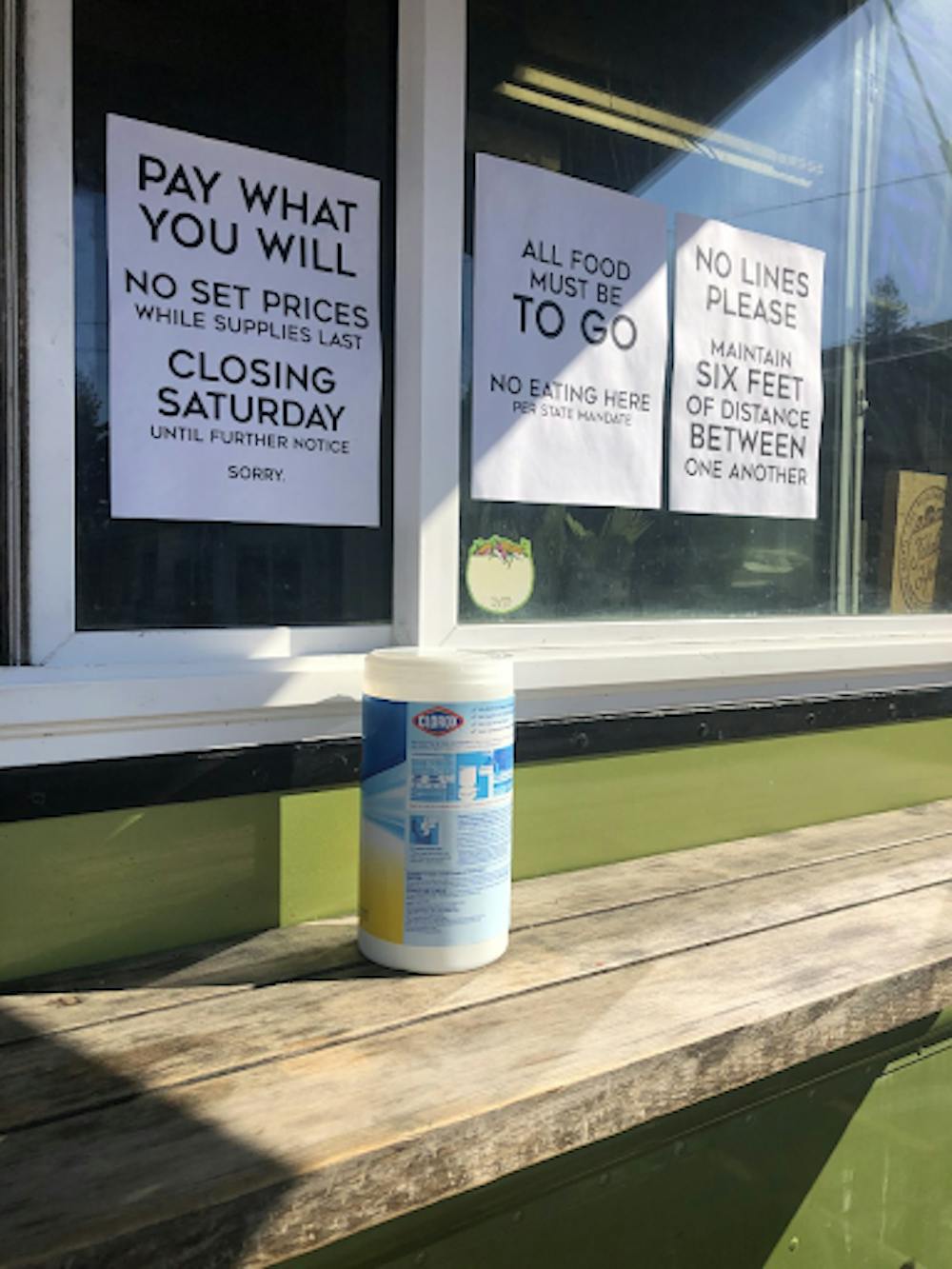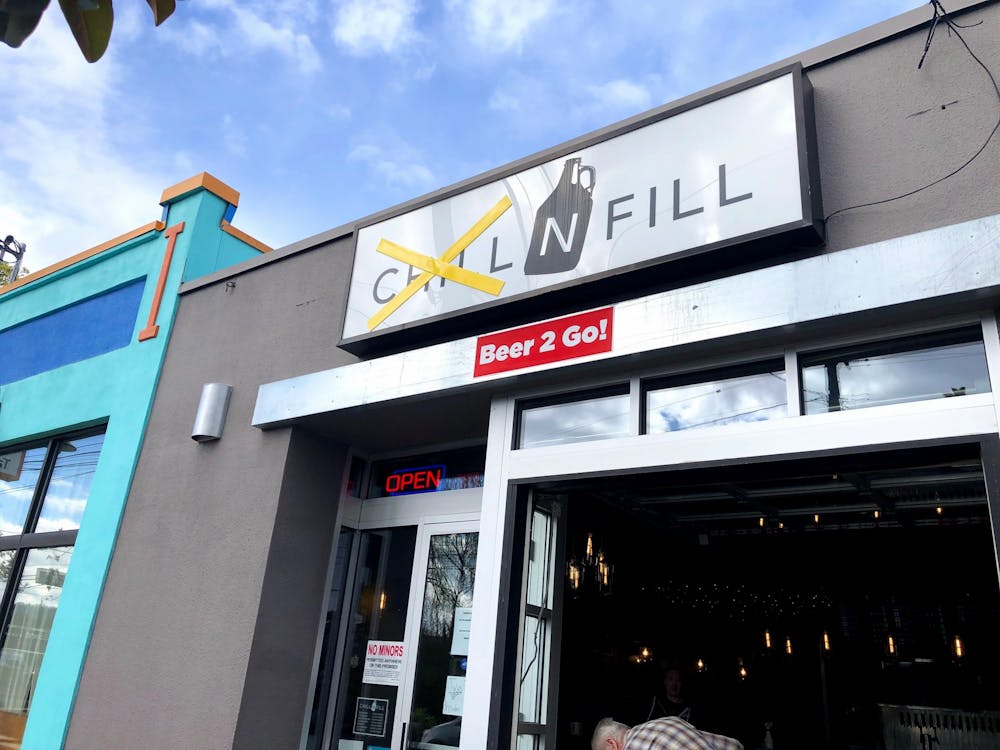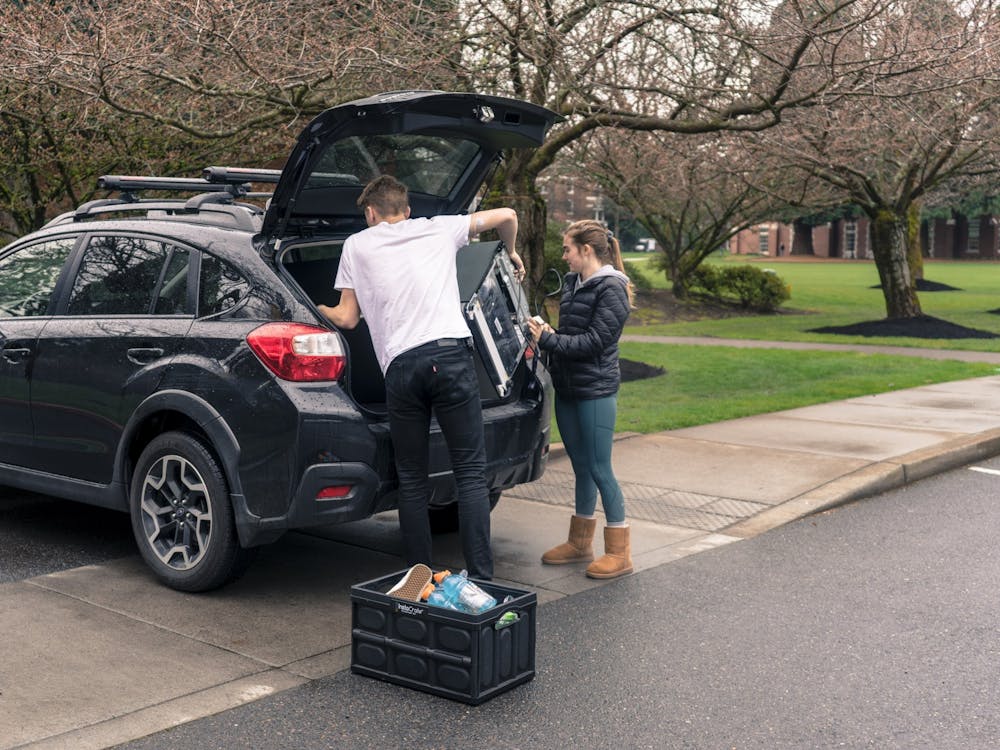The impact of the coronavirus in the Portland community is becoming increasingly damaging to local businesses. On March 23, Governor Kate Brown ordered the closure of all non-essential businesses and gatherings, mandating that places such as barbershops, movie theatres, tattoo parlors, and gyms and fitness studios must close their doors.
A statewide nonprofit called Built Oregon released a survey asking small business owners how their workplaces have been impacted, both financially and functionally. The survey received 907 responses from businesses across the state, the majority of which had between one and twenty employees. The survey’s results estimate that Oregon businesses are currently losing a combined $4.8 million in sales.
Multiple nonprofits have been set up to offer assistance to small businesses across the Oregon area, such as Business for a Better Portland. These communities are meant to put business owners in contact with one another to help set up spaces for them to stay afloat.
One industry that is particularly disadvantaged by the coronavirus outbreak is the food industry, specifically Portland’s food truck scene. Many of the food trucks around the city have been aware of the necessity for closure, and have given away their resources to help those in need. Falafel House, a food truck on Lombard Street, is one example of this. Having now closed, the food truck spent its last days selling food for whatever price customers were willing to pay.

Local food truck Falafel House is one of many businesses in North Portland to close after the COVID-19 outbreak. Photo courtesy of Ajay Davis.
How to support local businesses
Many local restaurants are available for takeout or on food delivery apps such as Postmates and Uber Eats. Some of the places that offer delivery options include East Side Deli, Thai Cottage, Drunken Noodle and Cha Cha Cha Taqueria. Uber Eats is currently offering a $0 delivery fee for many of these local restaurants in an effort to help the community.
Similarly, other organizations such as Organics to You are offering delivery for organic produce from local sellers. As many restaurants and vendors are facing significant reductions in customer traffic, ordering food from them is an effective way to lessen the struggles that they are facing.
Outside of the food community, many other businesses in the University Park area are facing similar struggles. As being local, single location franchises, they are unable to come up with the money to remain open.
Sam Holloway, a professor at UP who is also a part-owner of Crafting A Strategy, a networking community for craft breweries, has had firsthand experience with the effects of COVID-19 on his business. Holloway explained via email what he believes to be the key piece of advice for struggling local businesses.
“For small business owners, it is more important than ever to have open and honest conversations with your landlords and lenders — even if you can’t pay rent or your mortgage for a couple months,” Holloway wrote. “It is to everyone’s advantage to avoid an eviction or foreclosure, just be open and honest in your conversations and work hard to maintain strong lending and leasing relationships during these hard times. As heartbreaking as it can be to let go of employees, unemployment insurance benefits may be their best option to maintain their livelihoods during these hard times.”
Holloway’s network, which is specifically focused on craft breweries, is no stranger to the damage that the pandemic has done to small businesses everywhere. His network is currently focused on guiding and advising the breweries, as their loss of customers is as damaging as it has been to restaurants in general.
Some breweries are offering to-go or curbside pickup for their beer.
Economic impact
In addition to difficulties on a small scale, this issue also presents problems on a larger economic scale. In an email, professor Bahram Adrangi explained how the damage to small businesses will impact the economy in general.
“For instance, if the traffic to these businesses dries up, within a week or so they'll have cash flow problems. They won't be able to pay bills, utilities, wages, etc.,” Adrangi wrote. “If they can't pay these bills, companies and individuals that depend on the cash coming in from small businesses will face their own cash flow issues and have to lay folks off because not only demand for their businesses is falling due to slow down in the economy, but they're in a cash crunch as well. This downward spiral of economic activity is called the multiplier effect. You can think of it as the ripple effect.”
While most of the help that small businesses need must come from governmental policy and financial institutions, there are also a few things the individual consumer can do to help. One of the most important things these businesses need is immediate revenue. Many community non-profits are setting up networks so consumers can donate or help out companies however they can.
One of these groups is the previously mentioned Built Oregon. Built Oregon has started a program in which community members can purchase gift certificates from their favorite companies. The group has assembled a list of companies that offer gift certificates for purchase.
While many of these places have been forced to close, still others remain open, either online or with reduced hours in-store. Donations and purchase of gift certificates or other items are extremely valuable to these businesses and will be key in helping them stay afloat throughout the COVID-19 epidemic. Holloway stressed the importance of consumer aid going forward.
“It’s more important than ever for consumers to support their local small businesses,” Holloway wrote. “We can look for online shops created to keep products moving, we can buy gift certificates for use when shops reopen, we can even write strong reviews on social media of companies that impress us. Every little bit helps."
Ajay Davis is a reporter for The Beacon. He can be reached at davisaj22@up.edu.








